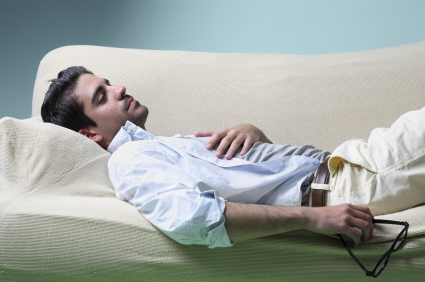‘The Myth of the Eight Hour Sleep‘ recently featured on the BBC website looked at a study conducted by Thomas Wehr in the early 1990s, when a group of people had been ‘plunged’ into darkness for 14 hours every day for a month. Interestingly, this study found that the group had settled into a pattern of sleeping in the first four hours, awake for one or two hours, followed by a second four-hour sleep. This study appeared to question the need for us to have a straight-through eight hour sleep.
We all crave a good night’s sleep. That groggy feeling we have when we awake feeling that we haven’t had a good night’s sleep can often leave us feeling exhausted throughout the day. For those with small children, a night of uninterrupted sleep is something we dream about! So do we really need eight hours sleep?
According to a major report published by The Sleep Council: A third of the population (33%) now get by on five to six hours sleep a night compared to 27% in 2010. And the majority of people (70%) sleep for seven hours or less.
How much sleep do we need?
Current NHS guidelines indicate that we don’t necessarily need eight hours sleep, but experts believe that most adults require between six and nine hours in order to feel refreshed and to function well both mentally and physically.
Jessica Alexander of The Sleep Council said: “…One of the best ways to improve sleep is simply to take more exercise. For many of us, that plus a sensible, regular bedtime and a comfortable bed, are key to sleeping well.
“Improving ‘sleep hygiene’ by keeping electrical devices like TVs and laptops out of the bedroom, giving ourselves time to wind down before bed and keeping our bedroom dark and quiet can also help.
How do we sleep?
Sleep patterns are defined in stages and each stage of sleep plays a different part in preparing us for the day ahead. There are two main types of sleep:
- Non-REM (NREM) sleep consists of four stages of sleep, each deeper than the last.
- REM (Rapid Eye Movement) sleep is when we do our most active dreaming.
Stage 1 – This is when we start to feel drowsy and our eyes move slowly under the eyelids, muscle activity slows down, and we are easily awakened.
Stage 2 – This is the first stage of deeper sleep. Our eye movement stops, heart rate slows, and body temperature decreases.
Stage 3 & 4 – It’s harder to wake from deep sleep and if you are you may feel groggy and disoriented for a while. In this deepest stage of sleep, our brain waves are extremely slow.
REM sleep – Or Dream sleep is when we dream.
People will go through each of the stages of sleep from one to four, then back down through stages three and two, before entering dream sleep.
What to do next
Is your bed preventing you from having a good night’s sleep? Why not take the Bed MOT and see if you’re due a new bed. Stocking an extensive range of bed brands including Staples, Respa, King Koil, Dorlux and Briody among others, Dalzell’s of Markethill are confident you’ll find a bed that’ll have you having sweet dreams in no time. What’s more, as a Sleep Council Retailer, you’re in good hands. Our staff are on hand to advise on the best bed and mattress to suit your sleeping style. Call us on T: 028 3755 1260, email or visit us in-store today for a great deal. Or why not view our great collection of divan beds and bed frames online at Armagh Beds.com. With Free Delivery and Free Collection and Recycling of Your Old Bed, throughout our Free Delivery Zone of Northern Ireland, and Counties Dublin, Louth and Monagahan in Ireland, Dalzell’s is the first choice for all your bedding needs.



 Price Match Promise
Price Match Promise 
